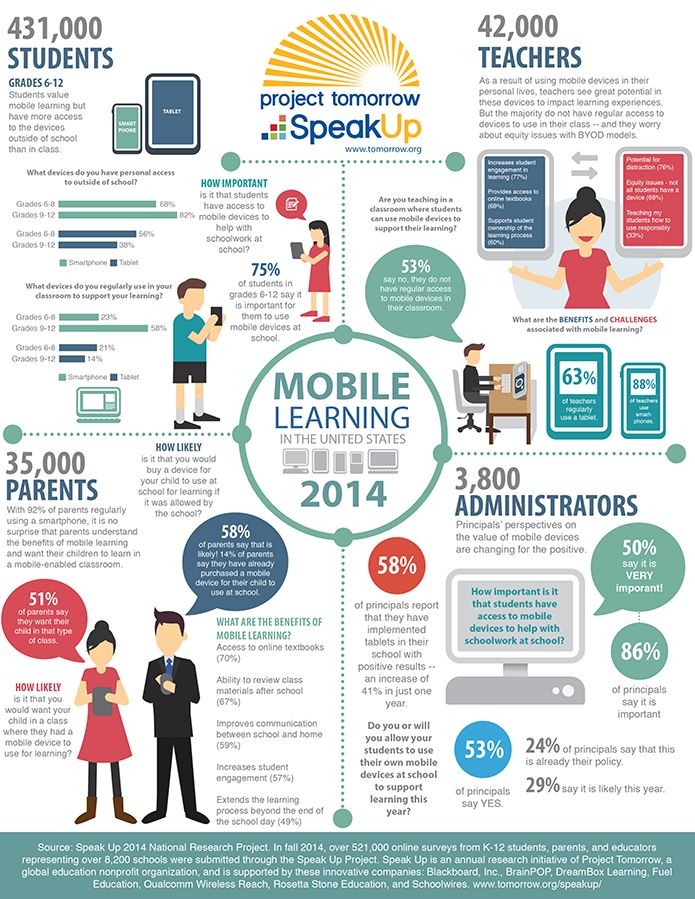Project Tomorrow has spent more than a decade tracking the growth and impact of digital technologies on schools and this year’s major survey contains a lot of rich research for those wanting to put games in the classroom.
The survey or more than 431,000 K-12 students in more than 8,000 schools in the U.S. found that nearly 60 percent of high school students are using their own smartphones and tablets to learn while in school.
The survey offered four broad trends the researchers found in the data including:
- When students have access to technology as part of their learning, especially school-provided or enabled technology, their use of the digital tools and resources is deeper and more sophisticated.
- Consequently, students who are effectively using digital tools to transform their learning experience place a higher value on the importance of technology as part of their personalized education process.
- Students connect the use of technology tools within learning to the development of college, career, and citizenship skills that will empower their future capabilities.
- The ability to use technology within school or class environments engages students in active learning and establishes a foundation for the development of a personal ethos of self-directed, independent learning.
“We hope by highlighting the views and values of today’s students, especially those students who are living a digital learning experience, this year’s report stimulates new discussions around the effective use of digital tools, resources and content to support student learning,” said Julie Evans CEO of Project Tomorrow.
And one of those possible tools that could support student learning is clearly games.
According to the survey, almost 66 percent of students want to use digital games for learning in school. Across all grades, students said they believe games make difficult concepts easier to understand and some 67 percent said these tools increase their engagement and interest in the subject content.
Despite the clear progress, Project Tomorrow’s Evans said the results also reaise a major test of the educational system in the U.S.
“Two big questions emerge from this year’s report: Are we ready to support a new kind of educational ecosystem that acknowledges learning as a 24/7 enterprise, and what do we need to do today to enable and empower these kinds of student-centric digital learning experiences for all students?” asked Evans.

